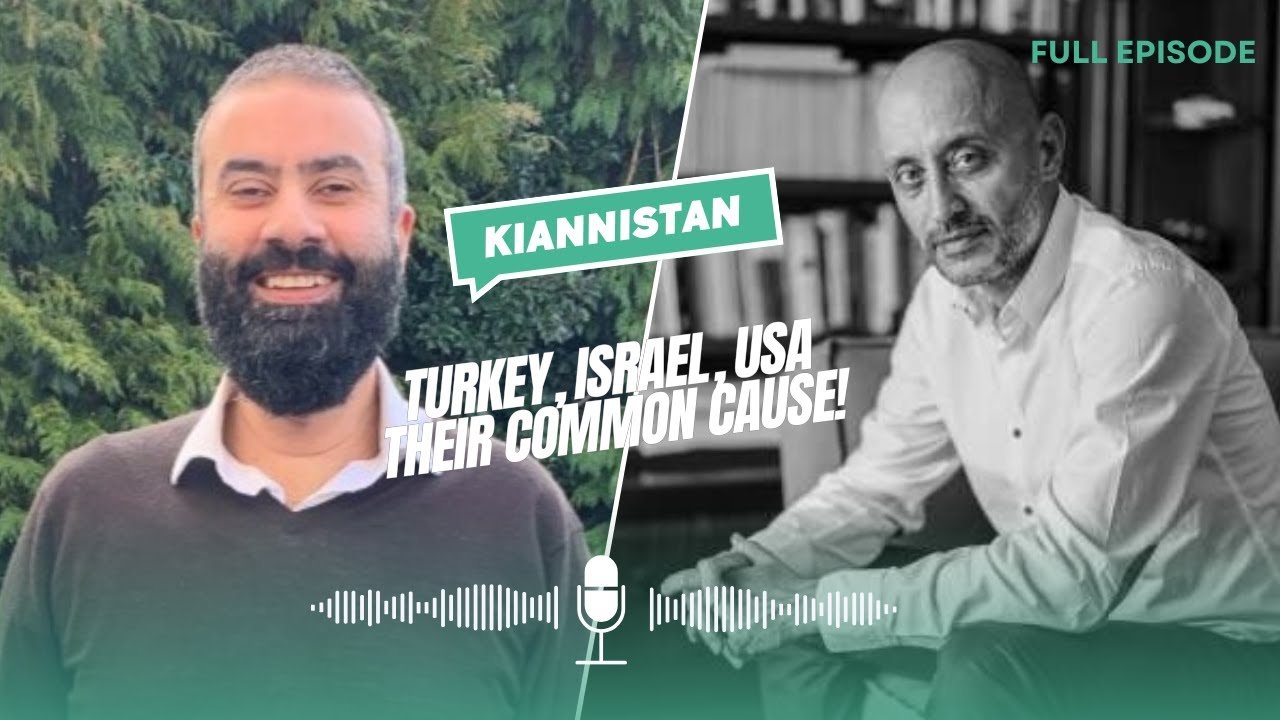Syria Under Siege: How Geopolitical Alliances Are Redrawing the Map – A Conversation with Professor Behlül Özkan
In Episode 18 of our podcast, we sit down with Professor Behlül Özkan, a renowned expert on Middle East geopolitics based in Istanbul, to unpack the rapidly evolving crisis in Syria and the broader regional dynamics shaping it. From Turkey’s political ambitions to Israel’s strategic calculations and the roles of Russia, Iran, and the United States, this conversation offers a timely and sobering analysis of a region on the brink of irreversible transformation.
🎥 Watch the full interview on YouTube here:
Turkey’s Political Landscape: From Democracy to Competitive Authoritarianism
We begin by exploring Turkey’s internal politics, where President Erdoğan’s rule has shifted the country toward what political scientists term “competitive authoritarianism.” Although elections are still held, the ruling coalition wields disproportionate media, financial, and institutional power. Professor Özkan explains that the real political divide is no longer Islamist versus secularist—but authoritarianism versus democracy.
The Immigrant Crisis as a Political Pressure Point
With over 7 to 10 million immigrants from Syria, Iraq, Afghanistan, and Africa, Turkey has become Europe’s gatekeeper. This demographic pressure, combined with economic challenges, has deepened political divisions and fueled populist narratives.
Syria’s Shifting Battlefield: The Fall of Assad?
The heart of the episode focuses on Syria’s rapidly changing situation. Opposition forces, led by the radical group HTS (formerly linked with Al-Qaeda), have in recent days captured major Syrian cities including Aleppo and Hama. Damascus may be next.
What shocked many observers is the speed and scale of this offensive—and the high-tech weaponry being deployed, including advanced drones. Özkan suggests this wouldn’t be possible without direct support from Turkey, and likely with backing from Israel and indirect involvement from the United States.
Why Now? Strategic Calculations Behind the Offensive
According to Özkan, this sudden military resurgence of the opposition aims to serve a broader regional strategy:
-
Israel wants to sever Iran’s supply lines to Hezbollah in Lebanon, which run through Syria.
-
Turkey sees an opportunity to install a friendly regime in Syria and economically benefit from reconstruction contracts.
-
The U.S. gains strategic leverage over Russia in both Syria and Ukraine.
Winners and Losers: Iran, Russia, and the Kurdish Question
Iran, long a supporter of Assad and Hezbollah, emerges as the biggest loser. The potential collapse of the Assad regime and loss of territorial control disrupts Iran’s influence from Tehran to Beirut.
Russia, distracted by the war in Ukraine, appears unable to effectively respond. Its military presence in Latakia is now at risk, forcing it into potential backroom deals with the U.S. and Israel.
Meanwhile, Kurdish forces in northeast Syria are likely to maintain de facto control, similar to Iraqi Kurdistan—ensuring Syria’s de facto partition.
Turkey’s Double Game: Pro-Palestine Rhetoric vs. Realpolitik
A particularly striking segment of the conversation highlights Turkey’s contradictory stance. While Erdoğan publicly champions Palestine and condemns Israel, trade with Israel has continued—and even expanded. Özkan exposes how this hypocrisy has not gone unnoticed by the Turkish public, including conservative Islamist voters.
He also reveals that Turkey’s drone industry—led by Erdoğan’s own son-in-law—has become a key player in Middle Eastern conflicts, including the current Syrian offensive.
What Comes Next? A Fragmented Syria, A Realigned Middle East
Professor Özkan concludes with a stark prediction: Syria is headed for fragmentation. A Kurdish statelet in the northeast, a potential Russian-protected enclave along the coast, and a volatile Sunni opposition region in the center.
As Syria breaks apart, the geopolitical chessboard is being reset. Iran is weakened. Israel is emboldened. Turkey is playing a risky, multifaceted game. And the people of Syria, once again, are caught in the crossfire of global and regional powers.
Final Thoughts
This episode offers an unfiltered look at the cynical pragmatism driving Middle Eastern politics. While leaders make lofty speeches about justice, religion, and sovereignty, the real engines of action remain economic interests, military advantage, and political survival.
🎧 Don’t miss the full discussion—watch the episode on YouTube here: [Insert YouTube Link]

